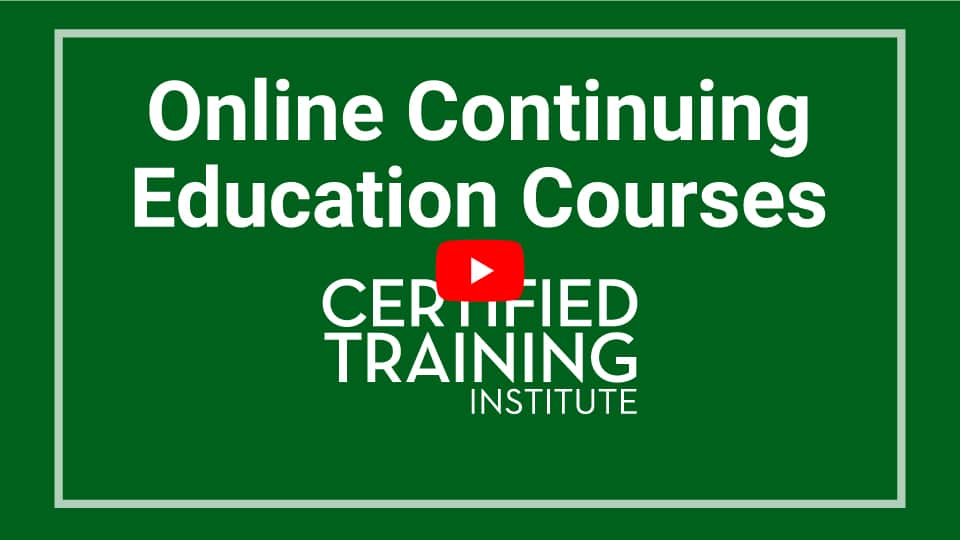Pesticide Applicator Continuing Education
Courses must be completed by 11:59pm EST 12/31, annually
Each course includes an official certificate of completion that you can save for your records. Looking for state reporting information? Learn more here.
Renewal Deadline: Alabama applicators must renew their certification every 3 years by the 28th of the original issue month. Training courses must be category specific. If an applicator holds more than one category only a total of 30 points are required.
Commercial applicators must obtain 30 points of category specific continuing education each certification cycle.
Private applicators must take the private applicator training through the Alabama Cooperative Extension System (ACES). CEUs are not accepted for private applicators at this time.
Per the ADAI, applicators are permitted to take 1 class (10 points) in an online format each certification cycle. The remaining 2 classes (20 points) must be completed in a live format.
Alabama Aquatic Pest Management
Aquatic ecosystems are extremely complex and fragile. This course covers the many aspects necessary for managing aquatic pests, from site evaluation and pest identification to pesticide application and treatment evaluation. Risk communication strategies are included, along with a variety of control methods in addition to aquatic pesticides.
Alabama Common Ornamental Plant Pests
Pest management of ornamental plants involves multiple steps from growing a healthy plant that is more resistant to pest damage to correctly identifying the problem when present. This course will cover the most common pests of ornamental plants.
Alabama Field Crop Pest Management
Pesticides protect plants and animals from insects, weeds, and diseases; improve the efficiency of food, feed, and fiber productions; and provide for greater crop yields. This course outlines various invasive pests of field crops and how an applicator can effectively treat pest invasions while protecting themselves and the environment from the adverse effects of pesticides.
Alabama Forest Pest Management
This course examines integrated pest management strategies within forest environments. Lesson material focuses on how to minimize pesticide’s impact on water sources, protect non-target organisms, and manage pesticide resistance.
Alabama General Structural Pest Management
As certified or licensed professionals we have legal responsibilities that we must fulfill in every job that we do. Not only do have to control pests, but we also have to do the paperwork and legwork that documents our applications. This course reviews the basics of general structural pest management.
Alabama Public Health Pest Control
Public health pests affect humans through discomfort and disease and can be found in homes and other buildings and structures. This course will outline control techniques and requirements for the most common public health pests which includes mosquitoes, flies, fleas, lice, bed bugs, cockroaches, wasps, ticks, mites, spiders, and rodents.
Alabama Right-of-Way: Weed Control
This course will review the methods and techniques to manage vegetation on right-of-way and non-cropland industrial sites safely without damage to non-target species, sites, objects, or the environment.
Alabama Wood Destroying Pest Management
Termites are just one of the many wood-destroying pests found throughout the United States. This course will cover the primary wood-destroying pests found through the country, the recommended treatments for each of those pests, and the primary sources of excess structural moisture.
Alabama Wood Treatment
Wood is the most renewable resource, and the extraction and processing of wood products take far less energy, carbon, and water than other raw materials. To use wood as a structural material for various demands, such as utility poles, fence posts, marine pilings, lumber, timbers, and plywood, the wood must be properly treated with chemicals to protect the wood from pests.

